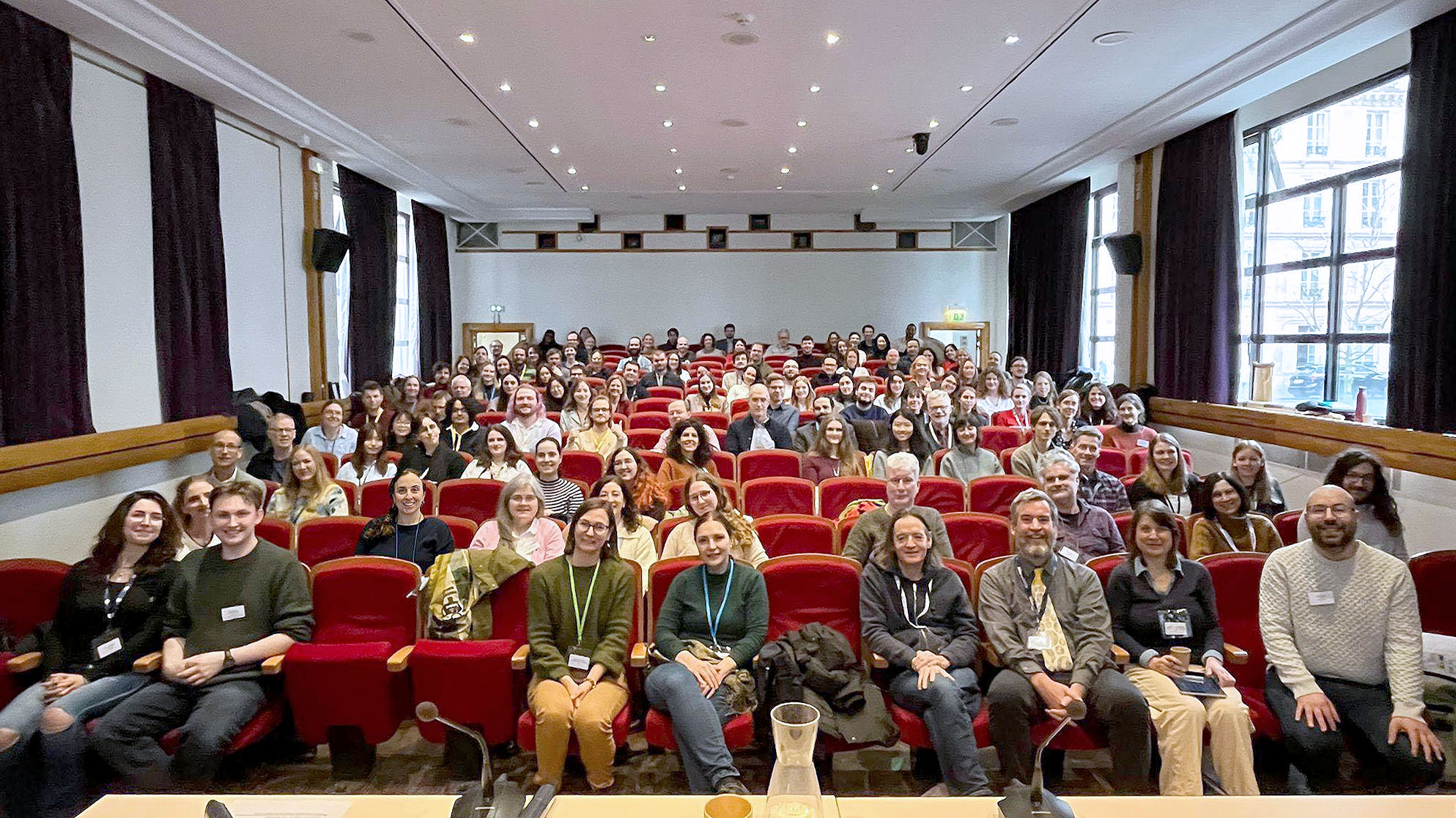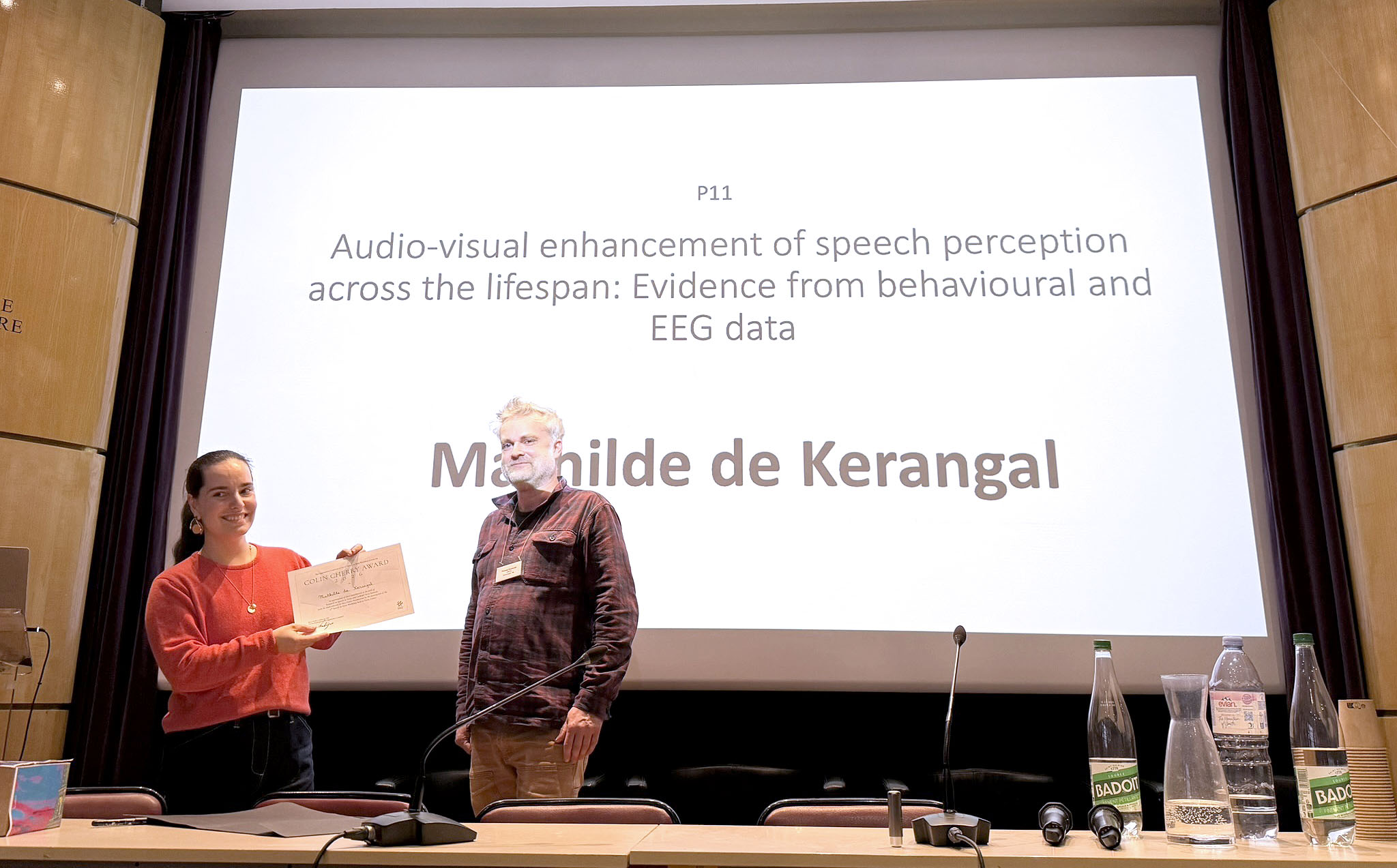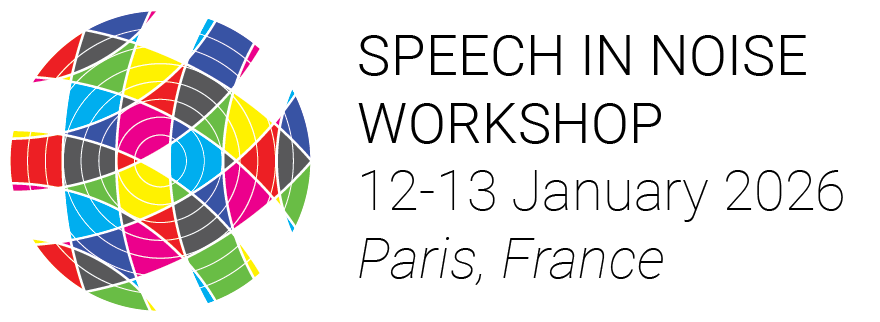The 17th Speech in Noise Workshop (SPIN2026) took place on 12-13 January 2026 in Paris, France, in the buildings of the prestigious École Normale Supérieure.
Watch out, if you are a regular SPIN participant, this time the meeting was be on a Monday and Tuesday rather than the usual Thursday-Friday.
- SPIN2027 will take place in Brussels, Belgium!
- If you presented at SPIN, consider uploading your poster and sending a DOI. See details.
Many thanks to Clémence Basire, Azal Le Bagousse, Simon Major and David López-Ramos, who helped make SPIN2026 possible!

Colin Cherry Award 2026
The Colin Cherry Award 2026 was attributed to Mathilde de Kerangal for her poster "Audio-visual enhancement of speech perception across the lifespan: Evidence from behavioural and EEG data". Congratulations!

The Colin Cherry Award is attributed every year in appreciation of a contribution to the field of Research on Speech in Noise and Cocktail Party Sciences, with the work selected for best poster presentation by the participants of the Speech in Noise Workshop. The prize consists of a cocktail shaker, and the recipient receives an invitation to present their work at the following SPIN workshop.
Programme overview
Keynote Lecture:
“Examination of speech coding in the human auditory nerve using intracranial recordings”
Xavier Dubernard
Institut Otoneurochirurgical de Champagne Ardenne, CHU de Reims, France | Institut des Neurosciences de Montpellier, France
Invited speakers:
- Colin Cherry Award 2025
Jessica L. Pepper
Lancaster University, Lancaster, UK
Age-related changes in alpha activity during dual-task speech perception and balance - Emma Holmes
University College London, UK
How voice familiarity affects speech-in-speech perception - Miriam I. Marrufo-Perez
University of Salamanca, Spain
Adaptation to noise: A minireview of mechanisms and individual factors - Sven Mattys
University of York, UK
What does cognitive listening mean? Is it time for a rethink? - Eline Borch Petersen
ORCA Labs, Scientific Institute of WS Audiology, Lynge, Denmark
Miscommunications in triadic conversations: Effects of hearing loss, hearing aids, and background noise - Laura Rachman
University of Groningen / University Medical Center Groningen, Netherlands
Voice cue sensitivity and speech perception in speech maskers in children with hearing aids - Léo Varnet
Laboratoire des systèmes perceptifs, Département d’études cognitives, École normale supérieure, PSL University, CNRS, 75005 Paris, France
The microscopic impact of noise on phoneme perception and some implications for the nature of phonetic cues - Astrid van Wieringen
Experimental ORL, Dept Neurosciences, KU Leuven, Belgium
Cochlear implantation in children with single sided deafness - Katharina von Kriegstein
Dresden University of Technology, Germany
How do visual mechanisms help auditory-only speech and speaker recognition?

